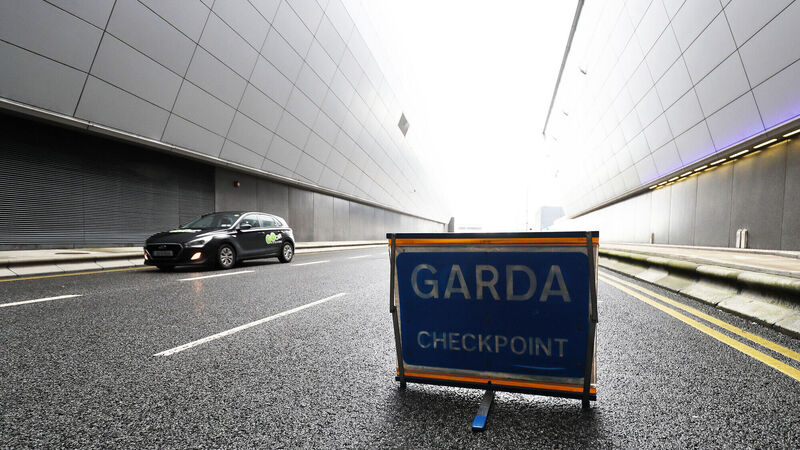Taoiseach: Hotel quarantining for travellers without PCR test to be in place by mid-February

A Garda checkpoint at Dublin Airport: Brian Lawless/PA Wire
The Taoiseach has said hotel quarantining measure for travellers who don't have a PCR test and are coming from specific countries should be in place by the middle of this month.
Micheál Martin said the country was "in a race" to get people vaccinated as "the variants have changed the landscape in relation to the virus very significantly".










